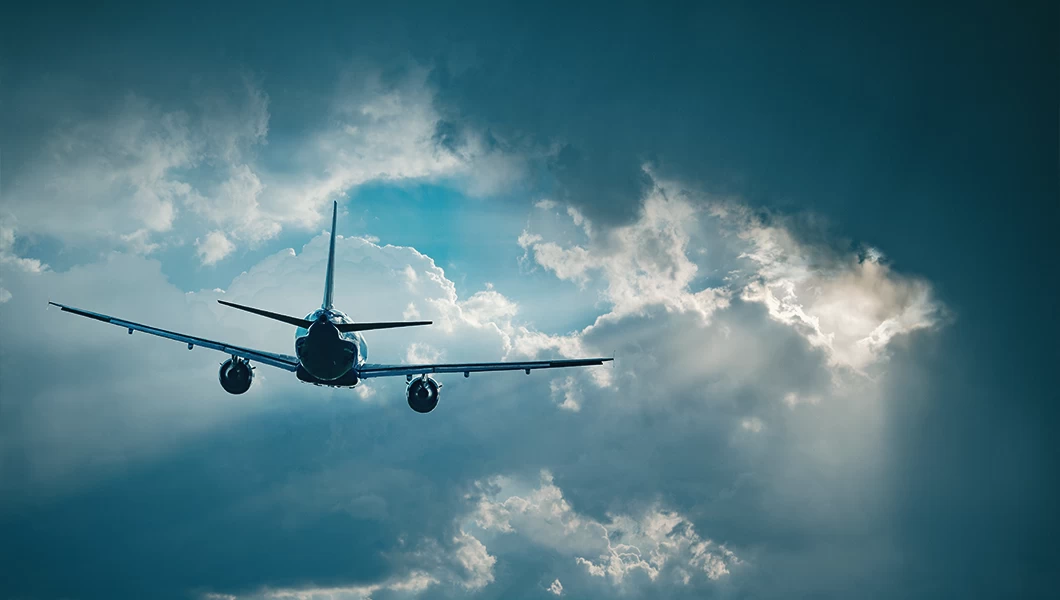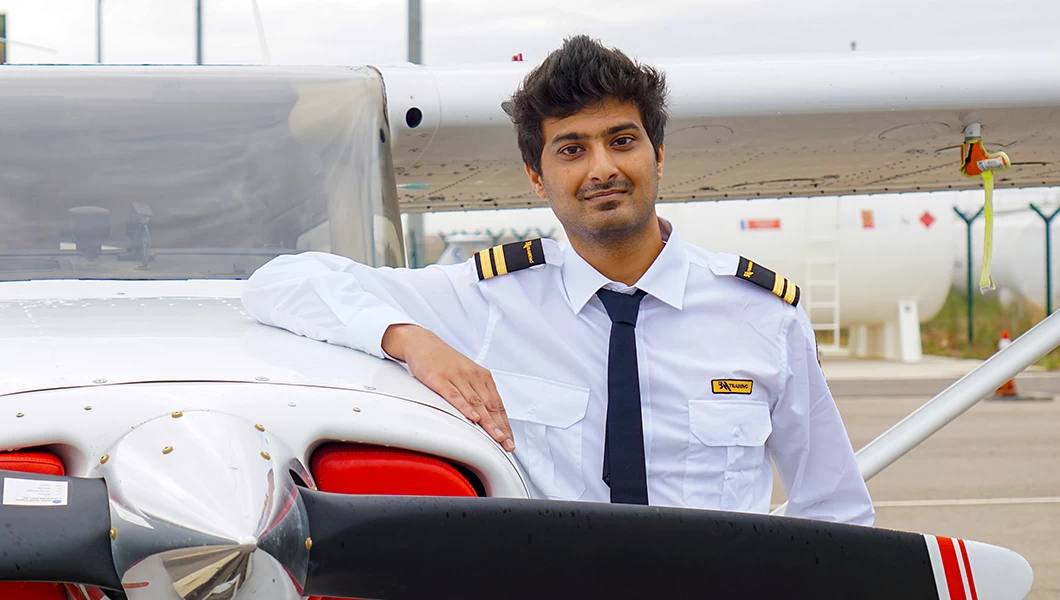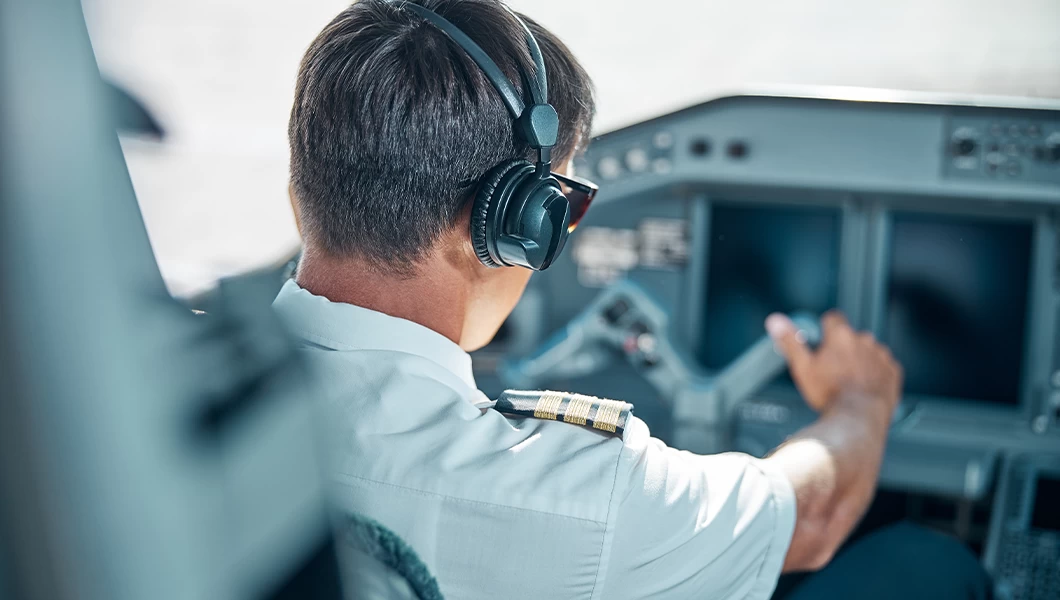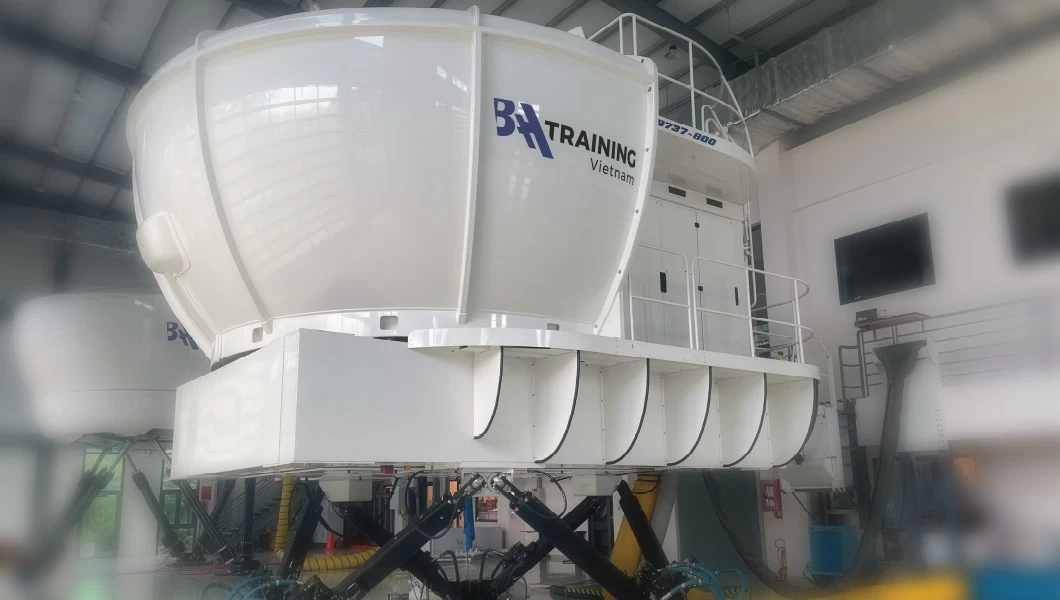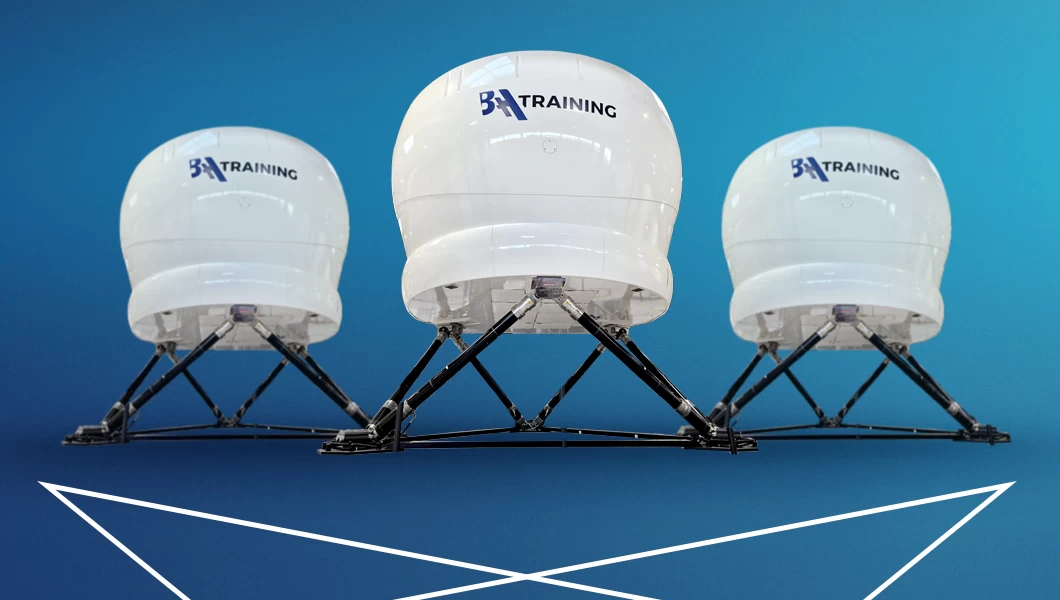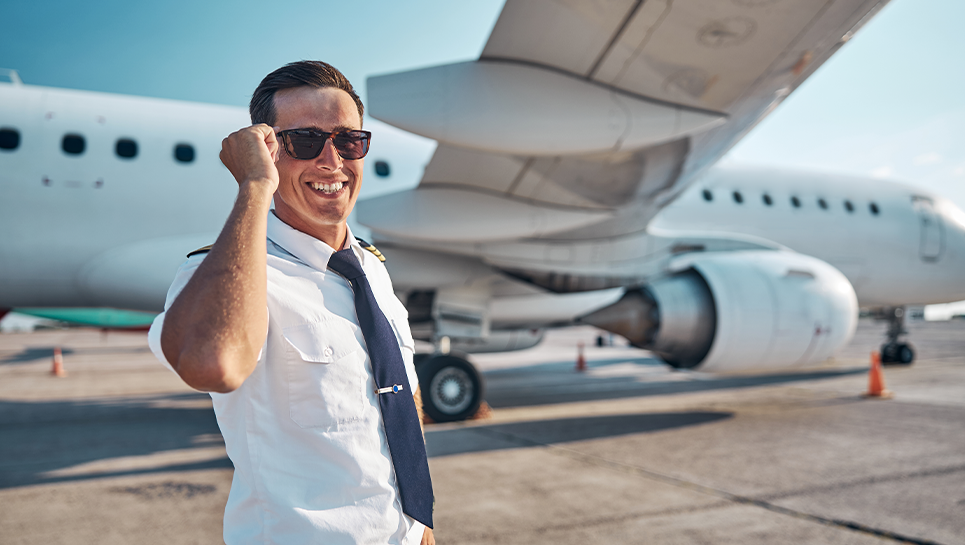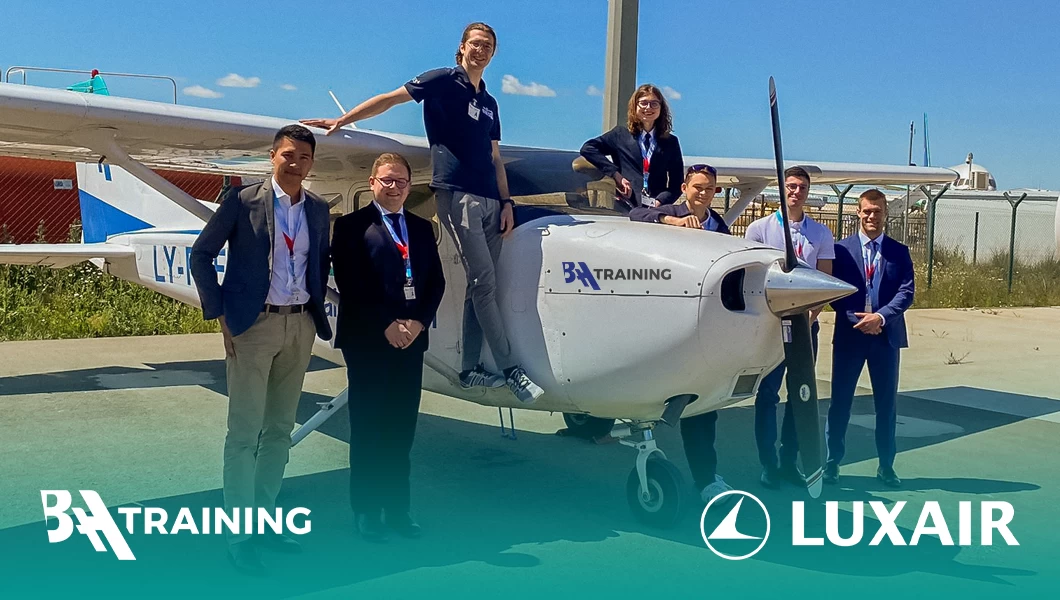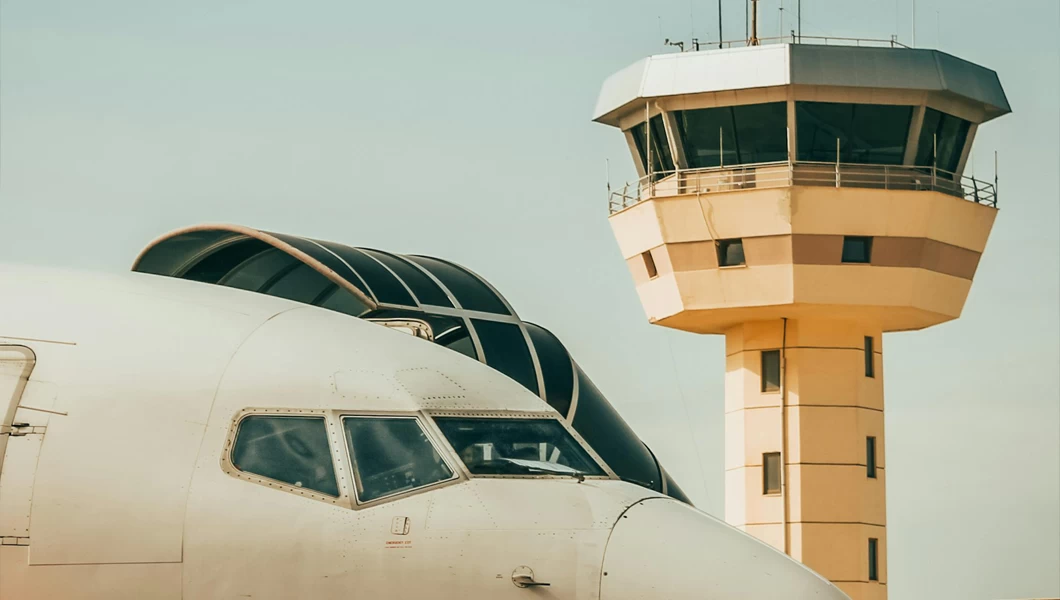Challenges imposed by a pilot’s daily routine
Let’s imagine a regular day of a pilot. Sitting position, approximately 12 hours of flying (as an example), acute fatigue from yesterday’s flight, and so on. Not that we mean to discourage you from flying, but rather to clearly illustrate the potential medical conditions the job might face if the preventive measures are absent. From this sentence describing a pilot’s day alone, it’s understandable that enough sleep and exercise are key. But that’s to begin with – there is further advice of what a pilot can do to be a friend to themselves, not an enemy.
Exercise regularly
It is unavoidable for pilots to maintain a sedentary lifestyle because of spending hours and hours in the cockpit, which may lead to musculoskeletal issues (back pain, arthritis, scoliosis, osteoporosis, etc.), weight gain or even obesity, cardiovascular problems (an increased risk of heart disease) and an overall weakened immune system. Exercising will reduce the chances of gaining personal experience of what it feels like to be diagnosed with one.
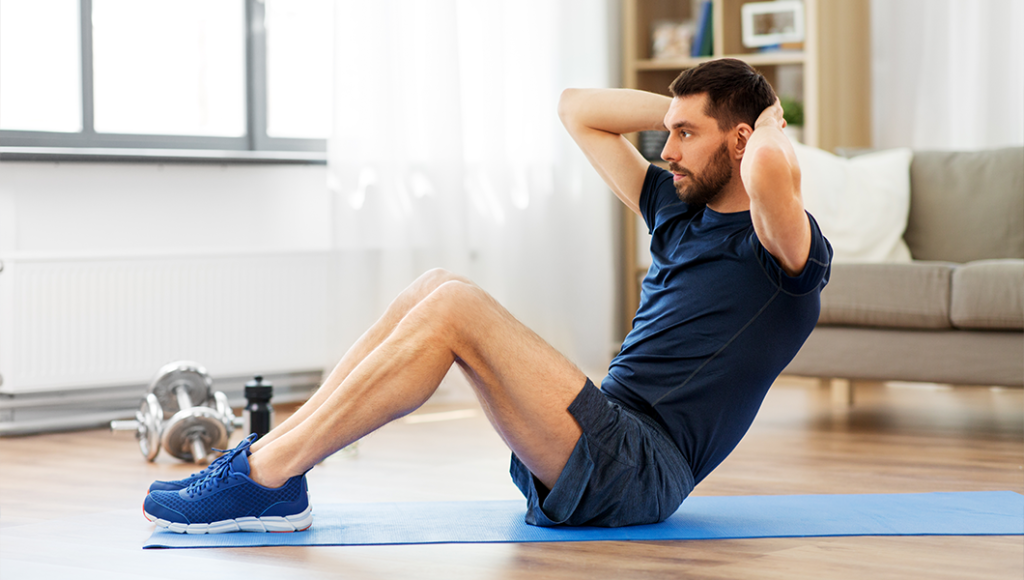
Of course, the diagnosis will not come overnight, but it is a cumulative process that is sometimes hidden from your eyes but is already happening. It can leave you disappointed and unhealthy in the long term and even impair flying skills. For instance, musculoskeletal issues, obesity and diabetes are among the top 10 diseases that can lead to losing long-term fitness to fly.
Follow a recommended exercise program for pilots
Medical advisors argue that for pilots, it’s imperative to focus on exercises that promote core strength, flexibility, and endurance. The duration should be chosen individually, ideally having consulted with a fitness professional or health professionals to tailor an exercise routine. Check the picture below to get a general idea of the must-include exercises.
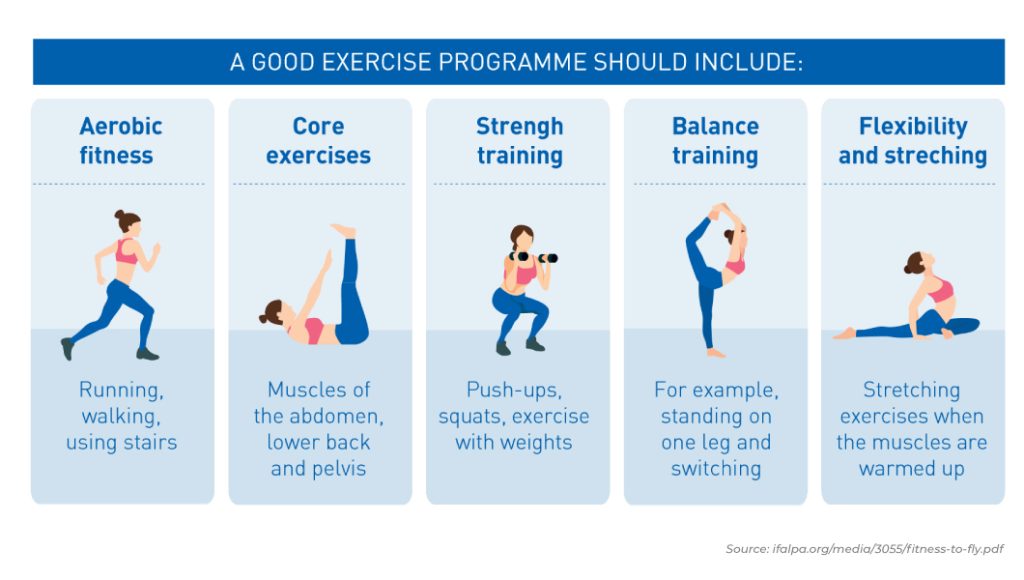
Ensure proper nutrition
The topic of nutrition is tightly connected to exercising, as one is simply ineffective without the other. Let’s not forget obesity and other problems can have several root causes. For example, prolonged hours of sitting are not the only reason pilots may be gaining weight – an unhealthy diet might contribute a lot. A proper and nutritious diet positively impacts physical health and raises mental alertness. But what is a healthy diet?
Aim for a well-rounded intake of all food groups
First and foremost, aim for a well-rounded intake of carbohydrates, proteins, healthy fats, fruits and vegetables.
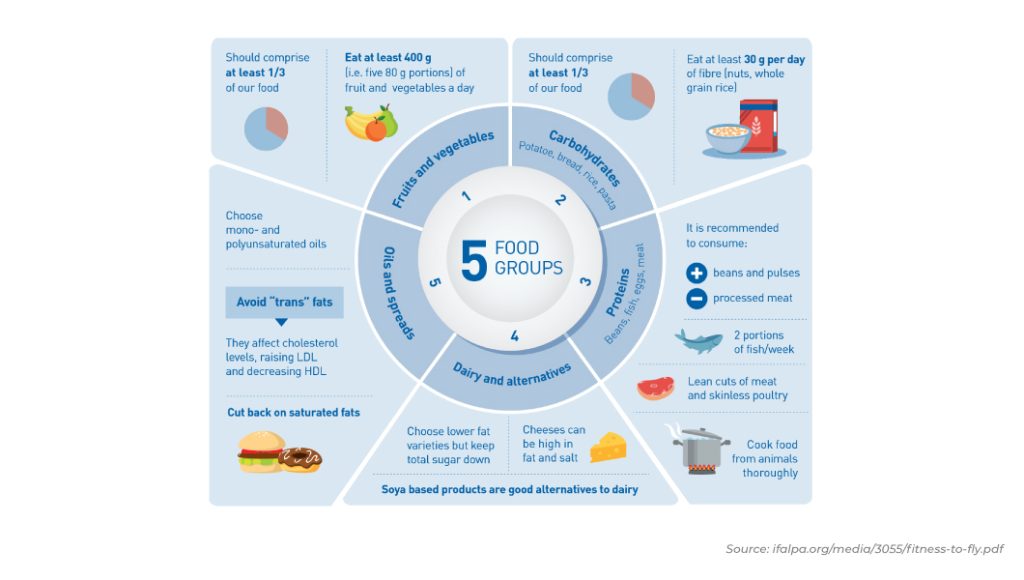
Carbohydrates
Carbohydrates (potatoes, bread, rice, pasta) should comprise at least one-third of your daily food intake, serving as a primary energy source. Aim for a daily intake of at least 30 grams of fibre by incorporating foods such as nuts and whole-grain rice into your meals.
Proteins
Consuming beans and pulses is very much recommended, as they are excellent plant-based protein sources. They are packed with essential nutrients, including vitamins (such as B vitamins), provide a steady release of energy and help to regulate blood sugar levels. Eating at least two portions of fish per week and prioritizing lean cuts of meat and kinless poultry is also advisable.
Healthy fats
Consuming avocados, olive oil, nuts, seeds, fatty fish, and coconut oil will provide sustained energy and promote heart health. They are rich in monounsaturated and polyunsaturated fats and beneficial omega-3 fatty acids, enhancing cognitive function and sustained energy levels during flights.
Fruits
The World Health Organization recommends consuming at least 400 grams of fruits and vegetables daily, or roughly five portions (each about 80 grams). You can make a colorful salad with greens, tomatoes, carrots, and bell peppers (use your imagination for the ingredients) or enjoy a piece of fruit as a snack.
Exclude unhealthy options
Of course, avoiding “trans” fats that affect cholesterol levels, cutting back on saturated fats (fatty cuts of meat, full-fat dairy products like butter, cheese, and whole milk), baked goods, fried food, and similar, is essential for maintaining optimal well-being. The same applies to high-sugar foods and drinks, alcohol, salty snacks, and caffeine. Fully excluding all this extremely hazardous combination is hardly possible, but at least ensuring moderate intake should be doable with a little effort.
Be cautious with seafood
Last but not least, be cautious about seafood, particularly shellfish, especially in regions with varying sanitary standards.
To sum up, rest, exercise, and a healthy diet should be the top three pillars on which every pilot should focus to operate aircraft safely.
Listen to the advice from a flying pilot
Rida Rais, a First Officer at Avion Express, when asked about the “healthiness” of his lifestyle, said: “Typically, I sleep an average of 8 hours, although it might be less on early morning duty days and more during my days off. I prioritize a healthy diet with balanced nutrition and plenty of vitamins. Additionally, I exercise 3 to 4 times weekly, including running and other workouts, to keep myself fit.”
Protect hearing and vision
The main concern with hearing loss is the risk of making the pilot unable to communicate clearly and an increased chance of misunderstanding an ATC instruction. Loss of vision, analogous to hearing, causes significant aviation safety risks and disrupts good pilot performance.
Invest in high-quality headsets
First and foremost, invest in high-quality noise-canceling headsets that reduce noise effectively. Wear them consistently, especially in environments with much ambient noise, such as in the cockpit or runway. Outside the aircraft, consider using custom-fitted earplugs when exposed to loud noises.
Wear sunglasses with UV protection
Wear sunglasses with UV protection to shield your eyes from harmful ultraviolet rays, particularly at higher altitudes with stronger UV exposure. Also, try to avoid direct sun exposure whenever possible. In the dry environment of the cockpit, especially at high altitudes, use lubricating eye drops to prevent dry eyes and discomfort. And, of course, taking regular breaks during long flights to rest the eyes and maintaining proper cockpit lighting are also crucial to avoid chronic illnesses.
Your PILOT CAREER
starts with a first click
Take care of your mental health
It may come as a surprise to you, but extensive research has revealed the mind-body connection is undeniable. For instance, continuous stress and anxiety can lead to physical outcomes such as elevated blood pressure or disrupted sleep patterns. Therefore, practicing relaxation techniques like meditation or deep breathing can be an effective treatment, proving beneficial for supporting normal functioning and the nervous system.
Download a useful meditation app
Numerous apps available for both iOS and Android have proven effective for practicing meditation and have become popular among users. You could try Headspace, Calm, or The Healthy Minds Program. Applications like these typically let you choose a meditation session of a preferred length, receive tips from the world’s leading scientists and meditation teachers, and conveniently track your progress.
Refer to a Pilot Peer Support Program
One more helpful method to deal with difficulties and not to be left alone is to refer to a Pilot Peer Support program or other aviation health unit.
In simple terms, it is a program whereby a pilot can seek confidential help with mental health, post traumatic stress, chronic fatigue, or other issues from a volunteer pilot peer. The peers are not health professionals. They are usually fellow pilots thoroughly trained in listening and coaching skills to assist their colleagues.
This way, you can seek an honest and transparent conversation with someone who understands your usual difficulties and can provide advice if you have faced an emotionally upsetting event.
Conclusion
In conclusion, the need to maintain optimal physical fitness for pilots isn’t exaggerated and is critical for flight environment. A balanced diet, regular exercise routine, adequate rest and being mindful about protecting hearing and vision are essential for a pilot not to get restricted from flying, to ensure flight safety when performing crewmember duties.
Through this commitment to holistic health, pilots can confidently and safely operate each flight, knowing they have prepared both their body and mind for the journey ahead.

